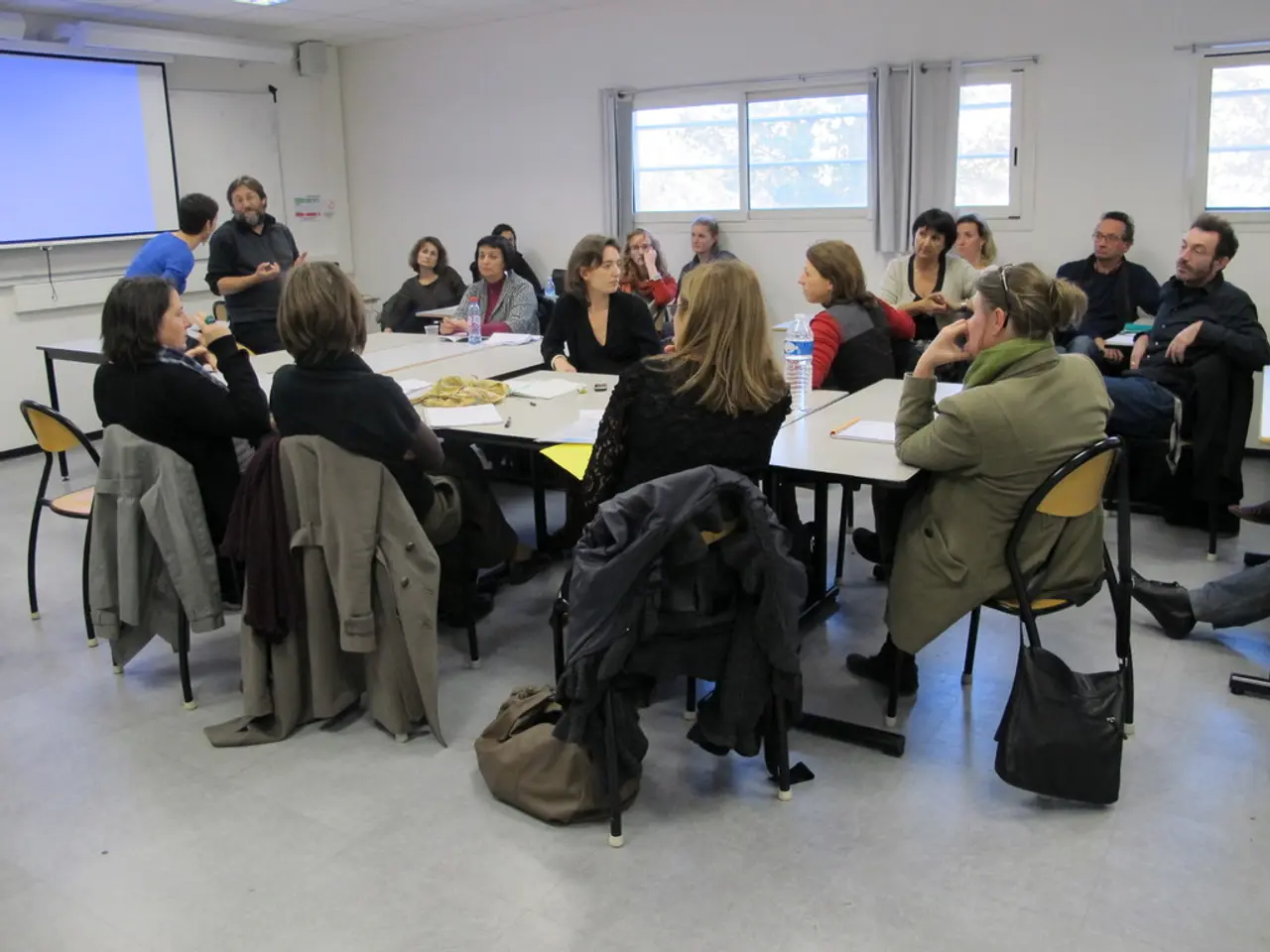Tactics for Sharing views in Public Forums or Gatherings
Communicating Effectively in Community Discussions
Sharing thoughts and collaborating with others is what community discussions are all about. They help us understand different perspectives, build relationships, and work towards common goals. However, expressing yourself effectively in these discussions can sometimes be tricky. Key terms such as 'communication' and 'expression' might seem simple, but they carry significant weight in conveying your message effectively. Communication is the process of sharing information, while expression is the way you present that information with clarity and intention.
It's crucial to express your ideas in community discussions for several reasons.
- Encourages mutual understanding: Sharing your ideas helps participants appreciate various viewpoints. This is essential for creating an inclusive environment where everyone feels heard.
- Boosts productivity: Clear communication leads to productive results, paving the way for successful collaboration.
- Builds confidence: Speaking confidently can empower you and help you drive changes within your community.
Understanding Your Audience
Getting the basics right begins with understanding your audience. Knowing who you're speaking to lets you tailor your message to resonate with them. For a local town hall meeting about environmental issues, if your audience consists of local residents, you might focus on the tangible effects like air and water quality. However, if the attendees are policymakers, your approach would shift towards presenting facts and potential legislation impacts.
To understand your audience, consider their interests, values, and knowledge levels. Adjust your vocabulary and complexity level accordingly. Speaking with technical terms to a lay audience might lead to confusion, while oversimplifying complex topics may cause disengagement with more informed participants. Actively listening to the community's concerns and feedback will guide you to shaping your discourse.
Communicating Clearly
Clarity is key in community discussions. Complicated language and lengthy explanations can blur your message, making it challenging for others to understand. So, when discussing local traffic congestion, rather than saying "Multimodal transportation networks present a panacea through which vehicular bottlenecks can be alleviated, and urban mobility can be optimized," opt for a clear statement such as, "Improving public transport can reduce traffic and make it easier to get around." Remember, the focus should be on transmitting essential information without dilution.
To achieve clarity, keep it simple and brief. Structure your sentences to communicate one idea at a time. Use analogies, visual aids, or plain language to help your audience grasp complex ideas better.
Engaging Through Stories and Examples
Stories and examples are powerful tools for engaging audiences and making your points more compelling. People find narratives engaging because they can evoke emotions and make abstract concepts tangible. To illustrate the importance of community gardens, for instance, share a story about a local garden transforming a vacant lot into a vibrant community hub.
Using examples helps to anchor your ideas in reality. Showing that a specific initiative improved another community with similar challenges can add credibility and context to your suggestion. Make sure your story or example is relevant and closely related to the discussion topic.
Encouraging Participation and Feedback
Active participation makes community discussions vibrant and collaborative. Encourage members to take part in discussions by creating a welcoming environment where everyone feels comfortable sharing their thoughts. Solicit opinions and feedback to foster collaboration. Ask open-ended questions like "What features should this space include to serve our community best?" during a neighborhood meeting about developing a shared public space is an example of this practice.
Active Listening
Effective communication is more than speaking; it's about actively listening too. Listen carefully, understand, respond, and remember what is being said. Engage genuinely with others, and consider diverse opinions. When discussing educational reform in an online forum, replying with "I see your point about integrating technology in classrooms" demonstrates engagement and openness to diverse viewpoints.
Maintaining Confidence
Confidence significantly impacts how others perceive your ideas. Practice beforehand, visualize success, and focus on calming techniques to maintain confidence. A confident speaker captivates listeners and presents their ideas more persuasively.
Summarizing and Reinforcing Ideas
Summarizing your points helps ensure lasting impact and clarify discussions. By recapping the essential ideas, you consolidate thoughts and help participants recall crucial insights. In a community forum about local healthcare improvements, highlighting the benefits such as increased access, enhanced quality of care, and community wellness keeps these aspects at the forefront of participants' minds.
Reinforce your ideas by linking them to the community's shared goals or values. Offering clear recommendations or suggestions helps move the discussion forward. For example, proposing "Let's form a committee to further explore these healthcare initiatives" maintains momentum and paves the way for future engagements.
- Investing in education-and-self-development can help in achieving personal-growth, enabling individuals to express their ideas effectively and contribute to community discussions with clarity.
- Striking the right balance between education-and-self-development and learning new communication skills can significantly enhance one's participation and influence within the community, facilitating personal growth and professional achievement.








